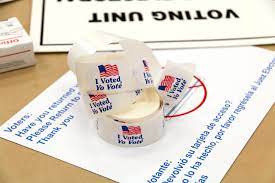Earlier this month, Starbucks launched its holiday drinks and new cups, setting the “winter mood.” Practically everyone on-campus is walking around carrying red and green wrapping paper-like cups and wearing puffer jackets. Whether you find yourself stressing over finals and registration or bubbling with excitement over the holidays, there is no denying that winter is coming, or that winter is already here, given that the temperatures are already dropping as low as 30° F.
It is time to get your things packed and ready, this year’s winter break officially starts on Nov. 24, at 9 A.M. DU’s quarter system provides a six-week-long winter break, which allows students to take part in internships, jobs, enroll in winter interterm classes or go back home.
During this time of the year, a substantial portion of the students choose the latter. Gabriella Barajas, a first-year at DU, shared that she has been planning for the break since the first weeks of the quarter and has already bought tickets to travel to her home in Texas.
However, with COVID-19 hospitalizations rising in Colorado and DU’s COVID-19 alert level recently moving to alert level blue, there is still a need for caution. DU’s plan to limit COVID-19 spread after winter break will be coming out in the next few weeks, but Dr. Sarah Watamura and Dr. Kim Gorgens from DU’s COVID-19 response team shared the main approaches the university plans to take.
“Unlike the beginning of the Fall Quarter, there will be no mandatory pre-arrival quarantine or testing, we plan to focus on aggressive arrival testing,” said Dr. Gorgens.
For the Fall Quarter, there were five compulsory steps to return to campus—notification of fall campus return date, completion of a responsibility course, pre-arrival quarantine, symptom monitoring and pre-arrival testing. For Winter Quarter, students are required to be vaccinated against the Flu, or to submit a request for exemption by Dec. 15.
“We are currently planning to begin the term immediately with required twice per week testing. We may have to put other requirements in place, depending on the conditions—but those decisions have not yet been made. We will certainly encourage everyone to limit exposure over winter break,” added Dr. Watamura.
Nonetheless, it is important to keep in mind that this is an ongoing situation and new recommendations and requirements can be put in place at any given time. For now, Dr. Watamura also recommends testing before leaving for the break.
Before leaving campus for winter break, it is important to remember to fill out the checklist—unplug everything but refrigerators from the wall outlets, discard all perishable food, close and lock all windows, take out the trash, do not leave personal items on the floor, take home all valuables, ensure that bicycles are secured to a designated bike rack or taken to rooms, notify family to not send perishable food via mail, update addresses in websites/services, turn off all lights, lock doors, take room keys and student ID—provided by the Housing and Residential Education department to all of those who live in DU’s Residential Halls, which might result in fines in case of non-compliance.











